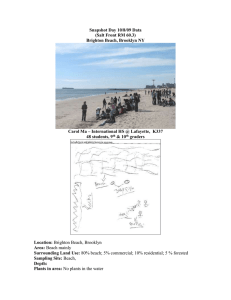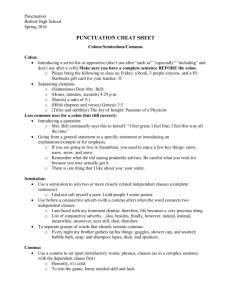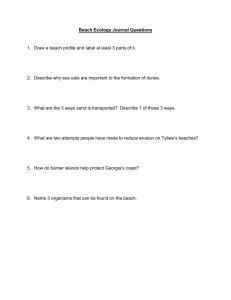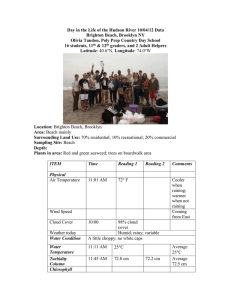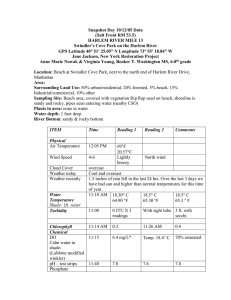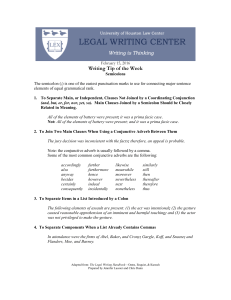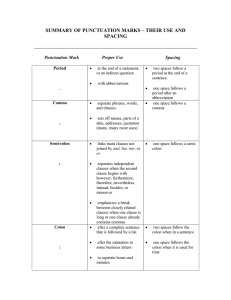When to Use Commas and Other Punctuation Marks
advertisement
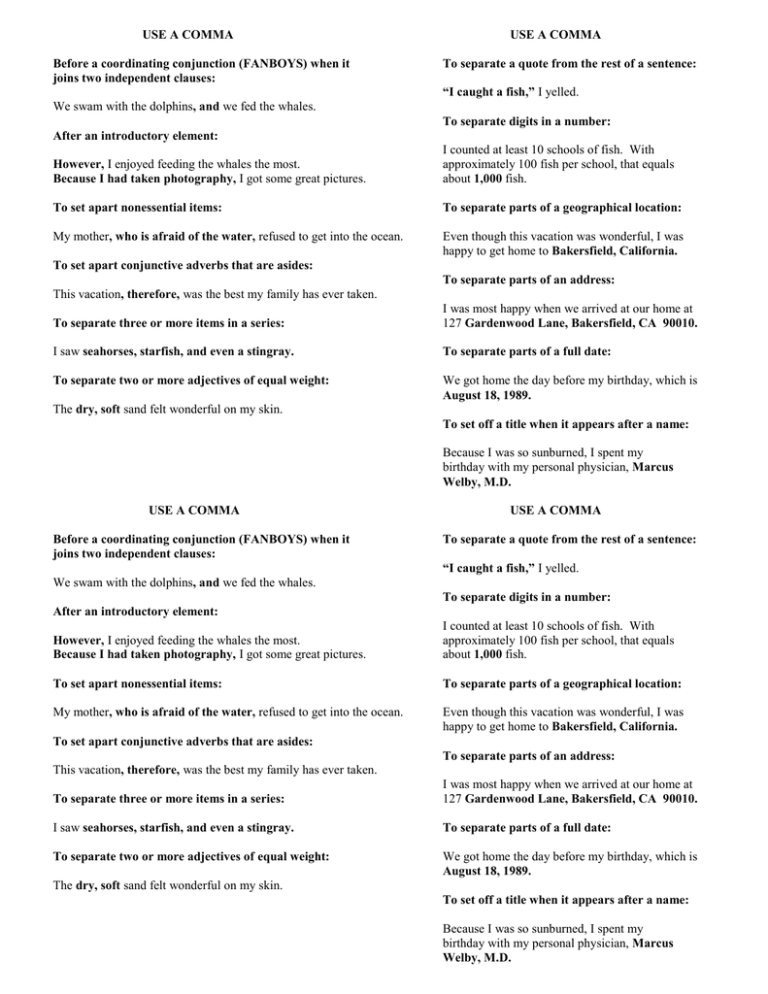
USE A COMMA Before a coordinating conjunction (FANBOYS) when it joins two independent clauses: USE A COMMA To separate a quote from the rest of a sentence: “I caught a fish,” I yelled. We swam with the dolphins, and we fed the whales. To separate digits in a number: After an introductory element: However, I enjoyed feeding the whales the most. Because I had taken photography, I got some great pictures. I counted at least 10 schools of fish. With approximately 100 fish per school, that equals about 1,000 fish. To set apart nonessential items: To separate parts of a geographical location: My mother, who is afraid of the water, refused to get into the ocean. Even though this vacation was wonderful, I was happy to get home to Bakersfield, California. To set apart conjunctive adverbs that are asides: To separate parts of an address: This vacation, therefore, was the best my family has ever taken. To separate three or more items in a series: I was most happy when we arrived at our home at 127 Gardenwood Lane, Bakersfield, CA 90010. I saw seahorses, starfish, and even a stingray. To separate parts of a full date: To separate two or more adjectives of equal weight: We got home the day before my birthday, which is August 18, 1989. The dry, soft sand felt wonderful on my skin. To set off a title when it appears after a name: Because I was so sunburned, I spent my birthday with my personal physician, Marcus Welby, M.D. USE A COMMA Before a coordinating conjunction (FANBOYS) when it joins two independent clauses: USE A COMMA To separate a quote from the rest of a sentence: “I caught a fish,” I yelled. We swam with the dolphins, and we fed the whales. To separate digits in a number: After an introductory element: However, I enjoyed feeding the whales the most. Because I had taken photography, I got some great pictures. I counted at least 10 schools of fish. With approximately 100 fish per school, that equals about 1,000 fish. To set apart nonessential items: To separate parts of a geographical location: My mother, who is afraid of the water, refused to get into the ocean. Even though this vacation was wonderful, I was happy to get home to Bakersfield, California. To set apart conjunctive adverbs that are asides: To separate parts of an address: This vacation, therefore, was the best my family has ever taken. To separate three or more items in a series: I was most happy when we arrived at our home at 127 Gardenwood Lane, Bakersfield, CA 90010. I saw seahorses, starfish, and even a stingray. To separate parts of a full date: To separate two or more adjectives of equal weight: We got home the day before my birthday, which is August 18, 1989. The dry, soft sand felt wonderful on my skin. To set off a title when it appears after a name: Because I was so sunburned, I spent my birthday with my personal physician, Marcus Welby, M.D. USE A SEMICOLON USE A COLON USE A DASH To join two independent clauses: To introduce a list, even of one: Hint: Do not use a colon after the words such as and including. To add and set off information: Swimming is great exercise; it works out both the heart and lungs. Before a conjunctive adverb joining two independent clauses: The following items are useful at the beach: a towel, some sunscreen, and bottled water. Swimming is also enjoyable; therefore, many people continue to exercise. At the beach, I noticed a most curious person: a man in a clown’s suit. My best adventure at the beach— meeting Alanis Morissette—was also my most memorable. She even agreed to sing my favorite song—“Hand in My Pocket.” To separate items in a series already containing commas: At the beach, we saw many strange creatures; ate many strange foods; and explored the malls, the thrift shops, and the antique stores. USE A SEMICOLON USE A COLON USE A DASH To join two independent clauses: To introduce a list, even of one: Hint: Do not use a colon after the words such as and including. To add and set off information: Swimming is great exercise; it works out both the heart and lungs. Before a conjunctive adverb joining two independent clauses: The following items are useful at the beach: a towel, some sunscreen, and bottled water. Swimming is also enjoyable; therefore, many people continue to exercise. At the beach, I noticed a most curious person: a man in a clown’s suit. To separate items in a series already containing commas: At the beach, we saw many strange creatures; ate many strange foods; and explored the malls, the thrift shops, and the antique stores. My best adventure at the beach— meeting Alanis Morissette—was also my most memorable. She even agreed to sing my favorite song—“Hand in My Pocket.”
